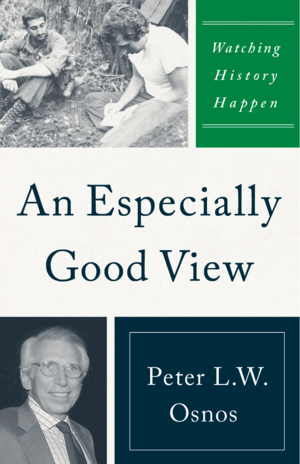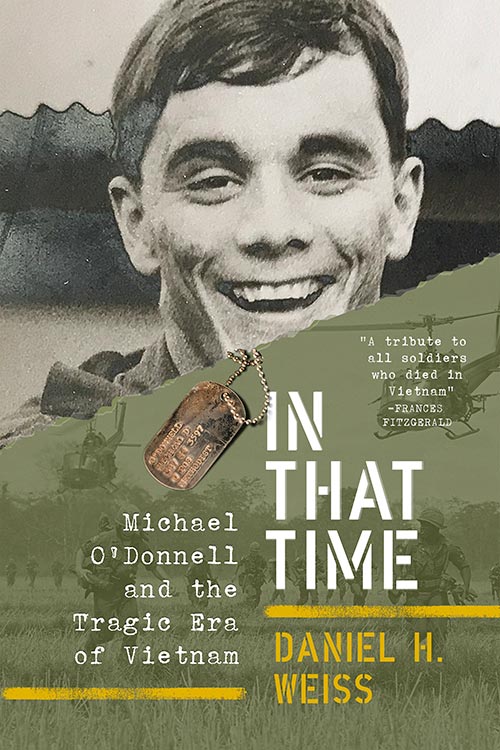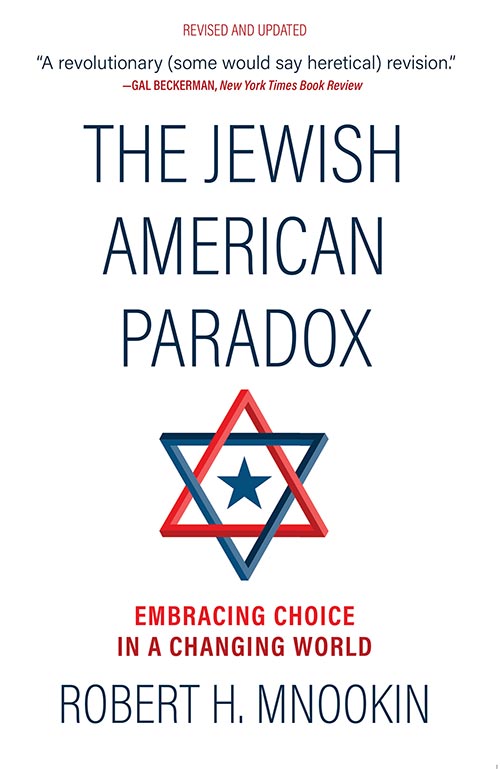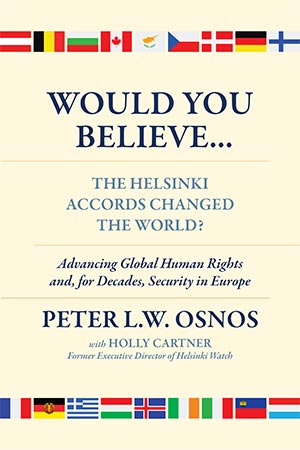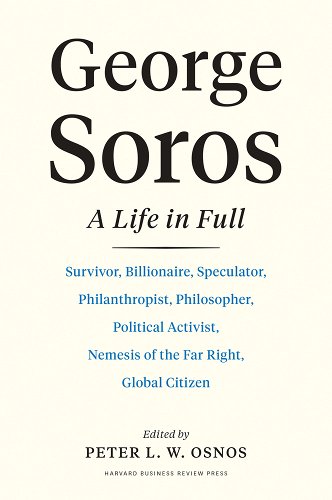Book Catalog
Please click a title for more information:
An Especially Good View
By Peter L. W. Osnos
Peter Osnos vividly portrays a lifetime of historic events and encounters dating from the Holocaust to the present day. It is a reported memoir spanning Osnos' half century in journalism and publishing, as well as personal insights and reflections in a life that began during World War II in India where he was born. As a journalist Osnos worked for the legendary I.F. Stone and was a correspondent for The Washington Post covering the war in Vietnam and the Soviet Union in the Cold War era. He was also the Post’s foreign and national editor. He then spent 12 years at Random House as an editor and publisher before founding PublicAffairs in 1997. He explores the world of books and the evolution of publishing over his years at Random House and the Perseus Books Group, where PublicAffairs was a partner until it was acquired by Hachette Book Group in 2016.
In That Time
By Daniel H. Weiss
Through the story of the brief, brave life of a promising poet, the president and CEO of New York's Metropolitan Museum of Art evokes the turmoil and tragedy of the Vietnam War era.
In That Time tells the story of the American experience in Vietnam through the life of Michael O'Donnell, a bright young musician and poet who served as a soldier and helicopter pilot. O'Donnell wrote with great sensitivity and poetic force, and his best-known poem is among the most beloved of the war. In 1970, during an attempt to rescue fellow soldiers stranded under heavy fire, O'Donnell's helicopter was shot down in the jungles of Cambodia. He remained missing in action for almost three decades.
Although he never fired a shot in Vietnam, O'Donnell served in one of the most dangerous roles of the war, all the while using poetry to express his inner feelings and to reflect on the tragedy that was unfolding around him. O'Donnell's life is both a powerful, personal story and a compelling, universal one about how America lost its way in the 1960s, but also how hope can flower in the margins of even the darkest chapters of the American story.
The Jewish American Paradox
By Robert H. Mnookin
Who should count as Jewish in America? What should be the relationship of American Jews to Israel? Can the American Jewish community collectively sustain and pass on to the next generation a sufficient sense of Jewish identity?
The situation of American Jews today is deeply paradoxical. Jews have achieved unprecedented integration, influence, and esteem in virtually every facet of American life. But this extraordinarily diverse community now also faces four critical and often divisive challenges: rampant intermarriage, weak religious observance, diminished cohesion in the face of waning anti-Semitism, and deeply conflicting views about Israel.
Can the American Jewish community collectively sustain and pass on to the next generation a sufficient sense of Jewish identity in light of these challenges? Who should count as Jewish in America? What should be the relationship of American Jews to Israel?
In this thoughtful and perceptive book, Robert H. Mnookin argues that the answers of the past no longer serve American Jews today. The book boldly promotes a radically inclusive American-Jewish community—one where being Jewish can depend on personal choice and public self-identification, not simply birth or formal religious conversion. Instead of preventing intermarriage or ostracizing those critical of Israel, he envisions a community that embraces diversity and debate, and in so doing, preserves and strengthens the Jewish identity into the next generation and beyond.
Would You Believe...The Helsinki Accords Changed the World?
By Peter L.W. Osnos with Holly Cartner
Would You Believe. . . When the Helsinki Accords were signed on August 1, 1975, the likelihood they would have a profound and lasting impact on the world were very small. Which is why a book about them after a half century is both surprisingly topical and well worth reading for anyone with an interest in modern history.
The thirty-five signatories were the nations of Europe, the United States and Canada at was formally known as the Conference of Security and Cooperation in Europe. The Final Act of CSCE contained detailed provisions on respect for human rights and set country borders that essentially held until Russia invaded Ukraine in February, 2022.
Only 15 years after the summit signing, the Soviet Union imploded and its Eastern European satellites broke with Communism and the broad range of human rights issues –civil, social, economic, and political – were a major factor in this historic turning point.
Peter L.W. Osnos’ expertise on the history of the accords is vast, as a journalist and publisher. His narrative writing skill is widely recognized. Holly Cartner provides a vivid account of how a small organization called Helsinki Watch became Human Rights Watch, the most important global NGO in its field.
George Soros: A Life in Full
Edited by Peter L.W. Osnos
A compelling new picture of one of the most important, complex, and misunderstood figures of our time.
The name George Soros is recognized around the world. Universally known for his decades of philanthropy, progressive politics, and investment success, he is equally well known as the nemesis of the far right--the target of sustained attacks from nationalists, populists, authoritarian regimes, and anti-Semites--because of his commitment to open society, freedom of the press, and liberal democracy. At age 91, Soros still looms large on the global stage, and yet the man himself is surprisingly little understood. Asking people to describe Soros is likely to elicit different and seemingly contradictory answers. Who is George Soros, really? And why does this question matter?
Biographers have attempted to tell the story of George Soros, but no single account of his life can capture his extraordinary, multifaceted character. Now, in this ambitious and revealing new book, Soros's longtime publisher, Peter L. W. Osnos, has assembled an intriguing set of contributors from a variety of different perspectives--public intellectuals (Eva Hoffman, Michael Ignatieff), journalists (Sebastian Mallaby, Orville Schell), scholars (Leon Botstein, Ivan Krastev), and nonprofit leaders (Gara LaMarche, Darren Walker)--to paint a full picture of the man beyond the media portrayals. Some have worked closely with Soros, while others have wrestled with issues and quandaries similar to his in their own endeavors. Their collective expertise shines a new light on Soros's activities and passions and, to the extent possible, the motivation for them and the outcomes that resulted.
Through this kaleidoscope of viewpoints emerges a vivid and compelling portrait of this remarkable man's unique and consequential impact. It has truly been a life in full.

